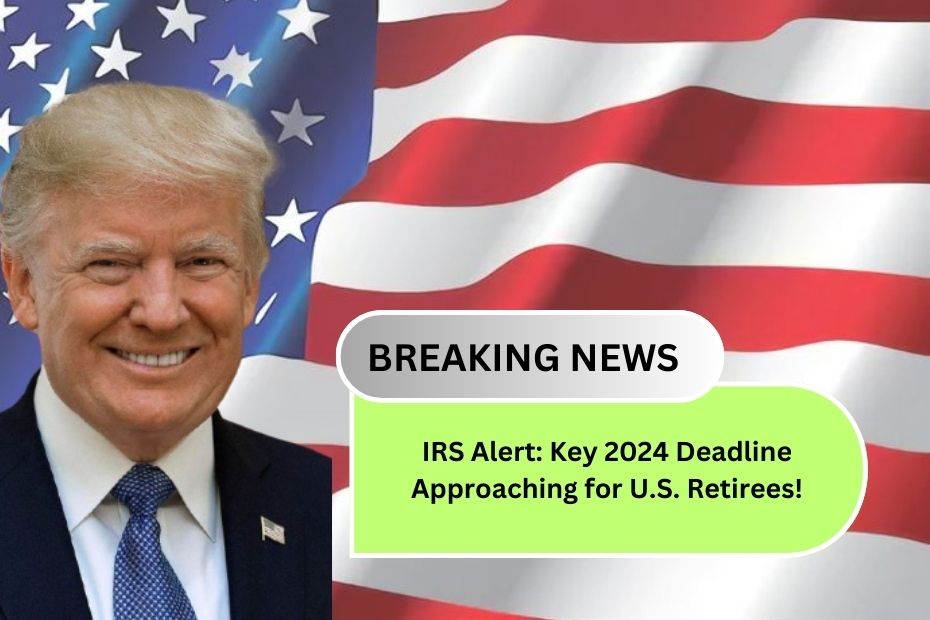The Internal Revenue Service (IRS) has issued a reminder to retirees, especially those 73 years old and older, about an important deadline for required withdrawals from retirement plans. This alert is crucial because these withdrawals must be made before the end of the year to avoid penalties. Let’s break down what retirees need to know to stay on top of these deadlines and ensure they follow the rules set by the IRS.
What Are Required Minimum Distributions (RMDs)?
A Required Minimum Distribution (RMD) is the minimum amount that retirees with retirement accounts like IRAs or other retirement plans need to withdraw each year. For retirees aged 73 or older, the IRS requires that they begin withdrawing from their retirement savings plans to prevent the money from staying in the account indefinitely.
RMDs apply to a variety of retirement plans, including:
- Individual Retirement Accounts (IRAs)
- SEP IRAs
- SIMPLE IRAs
- Other retirement savings plans
These withdrawals are considered taxable income by the IRS, meaning retirees must pay taxes on the amount withdrawn, unless it’s from a Roth account (more on that later).
Why Is This Deadline So Important?
If you are a retiree and do not take your required minimum distribution by the end of the year, you could face significant penalties. The IRS is strict about ensuring that people use the money they’ve saved for retirement, rather than allowing it to grow without ever taking it out. This deadline applies to anyone who is 73 or older and holds an IRA or another type of retirement account.
The IRS expects retirees to take out the minimum amount from their retirement accounts each year. If you do not, you could be charged a 50% penalty on the amount you were supposed to withdraw. For example, if you were required to withdraw $5,000 but didn’t, the IRS could charge you a penalty of $2,500. This is a serious penalty that can harm your financial stability.
What About Roth IRAs?
One type of retirement account that has different rules is the Roth IRA. The IRS states that retirees do not need to take RMDs from their Roth IRAs as long as the account owner is alive. This also applies to Roth accounts in employer plans like a 401(k) or 403(b). However, if you are a beneficiary of a Roth IRA or a designated Roth account, you will still be required to follow the RMD rules.
If you inherit a Roth IRA or another Roth account, you must withdraw funds according to the required minimum distribution rules for beneficiaries, even if the original account holder is no longer alive. These rules differ from the ones for the account owner, so beneficiaries must be aware of the timelines and amounts they need to withdraw.
What Happens if You Don’t Withdraw in Time?
If retirees don’t follow the IRS rules for RMDs, they could face significant consequences. Not only will they be charged a steep penalty, but they may also face tax issues. It’s important to remember that even if you withdraw more than the minimum, the extra amount may still be taxable, depending on the type of retirement account.
Additionally, if you are a beneficiary of a retirement account, not taking the required minimum distributions could also cause problems. It’s critical to follow all the IRS guidelines to avoid legal and financial trouble.
How Can Retirees Stay on Track?
The IRS encourages all retirees to keep track of their retirement withdrawals. Some steps to ensure timely withdrawals include:
- Set reminders: Mark your calendar or set an alarm for the deadline to ensure you don’t miss the required withdrawal date.
- Consult with a financial advisor: If you’re unsure about how much you should be withdrawing, seek advice from a financial professional to avoid mistakes.
- Check with your retirement plan provider: Many retirement plans send reminders or provide helpful information on how to make the required withdrawals.
By taking these steps, retirees can avoid penalties and keep their retirement savings working for them.
Conclusion
The IRS’s reminder about required minimum distributions is an important one for retirees, particularly those who are 73 years old and older. Failing to take the necessary withdrawals from retirement accounts can lead to serious penalties and tax complications. Retirees must ensure they meet these deadlines to avoid legal trouble and maintain their financial stability. Even if you are a beneficiary of a Roth IRA, it’s essential to understand the withdrawal rules that apply to you.
Frequently Asked Questions (FAQ)
What is the IRS 2024 deadline for retirees?
Retirees aged 73 and older must take their required minimum distributions (RMDs) from their retirement plans before the end of the year. This deadline helps retirees avoid penalties for not withdrawing the required amount.
What is a Required Minimum Distribution (RMD)?
An RMD is the minimum amount that retirees with retirement accounts like IRAs, 401(k)s, and other similar plans must withdraw each year once they reach the age of 73. These withdrawals are considered taxable income by the IRS.
Do Roth IRAs have required minimum distributions?
No, retirees do not need to take RMDs from their Roth IRAs while they are alive. However, if you inherit a Roth IRA, you will be required to follow RMD rules for beneficiaries.

